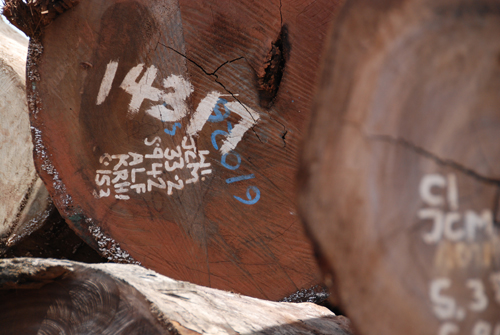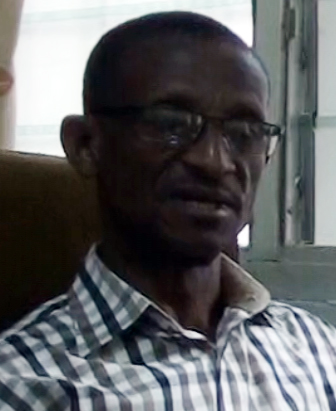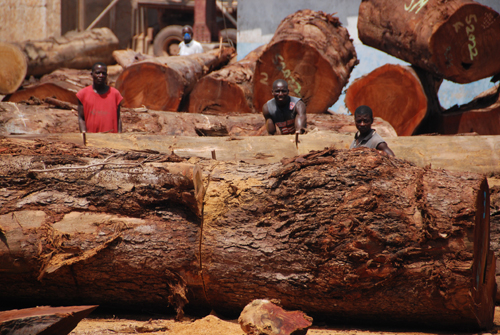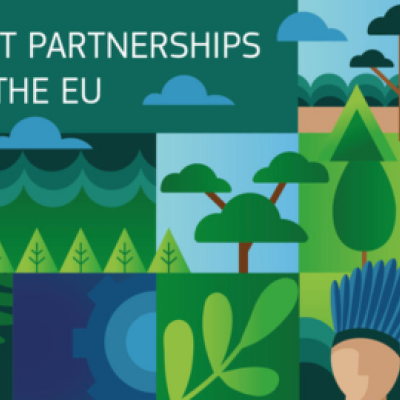FLEGT (Forest Law Enforcement, Governance and Trade) Voluntary Partnership Agreements (VPAs) are bilateral trade agreements between the European Union (EU) and partner countries aimed at guaranteeing that wood exported to the EU is from legal sources, and at supporting countries in Africa, Asia and Latin America in order to combat illegal logging and improve the governance of their forests.
|
At the end of January, Renée Zandvliet, working with EuropeAid’s 'Civil Society and Local Authorities' unit, visited the European Union Delegation to the Republic of Ghana and met with several representatives from CSOs. As a contribution to knowledge sharing, she decided to share with us some of what she learnt during her trip. |

FLEGT fosters processes and discussions between and among the stakeholders, including civil society organisations (CSOs), in partner countries. CSOs play an important role in FLEGT processes, for example by assessing if a VPA is appropriate for the country; fostering dialogue with stakeholders to determine the advantages of entering into VPA negotiations; defending the interests of forest communities and indigenous groups; proposing reforms; monitoring implementation, etc. Ghana was the first country to sign a FLEGT VPA in 2009 that entered into force in December 2009.
|
Ghana has approximately 2.6 million hectares of forest reserves dedicated to production, about 500,000 hectares of unreserved forests, as well as an additional 2 million hectares of crop land that also produce timber. Revenue from timber exports in 2008, € 187 million, makes the forest sector the fourth largest contributor to the GDP. Ghana has a strong reputation for innovation in wood processing and value addition, making products particularly suited for the European market. Consequently, the EU is a valuable market for Ghana, accounting for 43 % of the value of total exports and 33 % of the total volume. Source: www.euflegt.efi.int/portal/home/vpa_countries/in_africa/ghana |
The EU and indeed the EU Delegation to Ghana consider civil society an important stakeholder in governance, including forestry governance. A key player in this regard is the NGO coalition Forest Watch Ghana. During negotiations CSOs were active members of the VPA steering committee and the different technical working groups. However, the involvement of civil society was not straight-forward from the beginning.

K. Samuel Nketiah, the Director of Tropenbos International Ghana, was one of the civil society representatives on the VPA steering committee. He explained that:
"Initially the government made the mistake of thinking that International Union of Conservation of Nature (IUCN), which was facilitating the process, was representing civil society, even though IUCN did not hold itself as such. They were providing resources and support for the facilitation of the process. Following objections raised by CSOs, civil society was eventually invited to bring a representative and Forest Watch got the opportunity to nominate somebody to represent civil society. But civil society continued their agitation, saying that one person representing civil society was not adequate and that more representatives were needed. So Forest Watch mobilized several civil society organisations, including the trade unions, women's groups, people living with disabilities, traditional authorities and several others for a meeting which nominated me to be the second representative on the steering committee. At the time, the representatives would always take decisions back to civil society for comments, inputs and information. Civil society made some useful inputs which made the government also appreciate and give more recognition to civil society's role in the whole VPA process."
One example of civil society input in the negotiation phase, which was incorporated, is the principle of Free Prior Informed Consent (FPIC). FPIC essentially means that a community has the right to give or withhold consent to proposed projects that may affect their lands, territories and natural resources. Within the context of FLEGT this means that for timber to be legally valid, particularly if it originates from off forest reserve areas and farms, the timber producer should have a document to prove that he has consulted the farmer and that the farmer has given his or her consent.

During implementation CSOs also managed to ensure their representation on the Multi-stakeholder implementation committee (M-SIC) that oversees the implementation of the agreement at the national level. The challenge of course is for those civil society representatives sitting on the M-SIC to ensure that they communicate well with, and effectively represent, local communities. However, they themselves argue that this is difficult due to the lack of resources for feedback meetings with constituencies, which allegedly were available only during the negotiation phase.
Moreover, government institutions (including the strategically important Forestry Commission) do not always prioritise active engagement with civil society, as is illustrated by the low interest shown for the sessions dedicated to civil society during the FLEGT Joint Monitoring Review Missions, held once a year with key stakeholders.
One major issue of contestation is that of ineffective implementation of Social Responsibility Agreements (SRAs). Under these SRAs, communities in concession areas are to benefit from specific development projects. The SRAs between concerned communities and timber contractors must be complied with in order for the timber coming from each concession to receive a FLEGT license. In principle, the level of funds allocated under the SRAs should not be less than 5% of the stumpage fees, but since this is rather difficult for communities to compute, the amount is often contested.
The general sense is that CSOs are working independently, not just of the government but also of donors. For example, during recent discussions linked to the Natural Resource and Environmental Governance (NREG) Programme, CSOs did not hesitate to confront both the government and donors on the issue of small scale mining. Whereas the government and donors stressed the negative impact on safety and public health as well as concern about undeclared revenue, CSOs insisted that small scale mining operations were creating revenue and employment. They argued such operations needed support to be run properly and legally rather than being banned outright.
In addition to their role in the FLEGT dialogue, CSOs also receive support to implement a wide range of projects linked to the implementation of the FLEGT VPA.
-
Click here for more information about the FLEGT VPA with Ghana
-
Click here to read the full text of the FLEGT VPA with Ghana
|
Renée Zandvliet is working for EuropeAid’s 'Civil Society and Local Authorities' unit. She recently contributed to the drafting of the policy for a more strategic EU engagement with civil society, and she is currently working on the preparation of guidance materials for staff in EU Delegations on how to better work with and support civil society organisations. She has also written two other pieces on her visit to Ghana: Women’s Manifesto in Ghana: Ghana's Civil Society's 'Roadmap' for Women's Advancement and Civil Society and Oil and Gas Governance in Ghana. At the end of 2012, Renée also visited India in order to identify and document good or innovative practices of how the European Union (EU) Delegation to India supports CSOs. Upon her return to Brussels, Renée drafted two Voices & Views and one blog for capacity4dev.eu: Civil Society and Human Resources for Health; CSOs in India use the Right to Information Act for Accountability and Transparency; The EU Delegation to India and the New EU Civil Society Policy. |
This collaborative piece was drafted by Renée Zandvliet with input from K. Samuel Nketiah, the Director of Tropenbos International Ghana, Bernard Crabbé and Emilie Goransson from EuropeAid and Joseph Bogrebon Allan from the Delegation to Ghana, with support from the capacity4dev.eu Coordination Team. Photos taken by Yves Derenne in Ghana. Banner Photo Credit: EU FLEGT and REDD facilities (CC BY-NC-SA 2.0)





Log in with your EU Login account to post or comment on the platform.